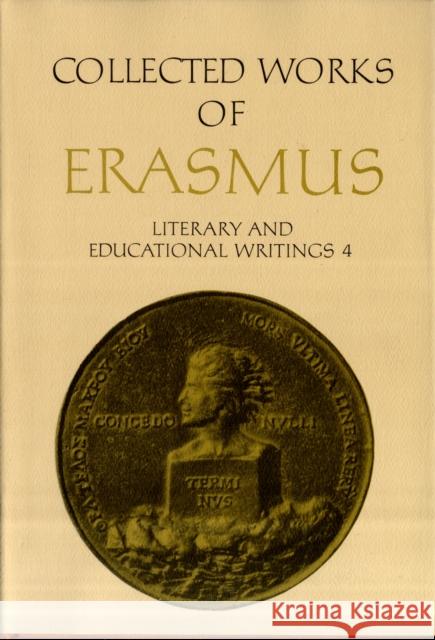Collected Works of Erasmus: Literary and Educational Writings, 3 and 4 » książka
Collected Works of Erasmus: Literary and Educational Writings, 3 and 4
ISBN-13: 9780802055217 / Angielski / Twarda / 1985 / 678 str.
Erasmus was above all an educator, and his writings as a teacher and theorist give him a claim to be regarded as the greatest figure in the history of education since antiquity. By the decade of the i32os, he had become the leading spokesman for the cause of humanistic education in Europe. The five translations in Collected Works of Erasmus 23 and 26 reflect Erasmus' main ideas about education: concern for the most desirable and effective curriculum; the need to read and appreciate the best writings of the finest classical authors; the importance of well-trained, well-paid, competent, inventive, and compassionate teachers; practical advice on the temperament and conduct of parents; the provision of adequate education for women and mature students; in short, the development of a philosophy of education that would produce the kind of person best educated for the service of God and man. Contained in these volumes are the first modern English translations of De conscribendis epistolis I On the Writing of Letters, Conficiendarum epistolarum formula I A Formula for the Composition of Letters, De civilitate I On Good Manners for Boys, De pueris I A Declamation on the Subject of Early Liberal Education for Children, and De recta pronuntiatione I The Right Way of Speaking Latin and Greek A Dialogue. These works present Erasmus' educational program for children from the very young to pre-university age - a compendium of his views on the nature and value of a humanistic education that remains of importance for all times and places. Volumes 25 and 26 of the Collected Works of Erasmus series - Two-volume set.











